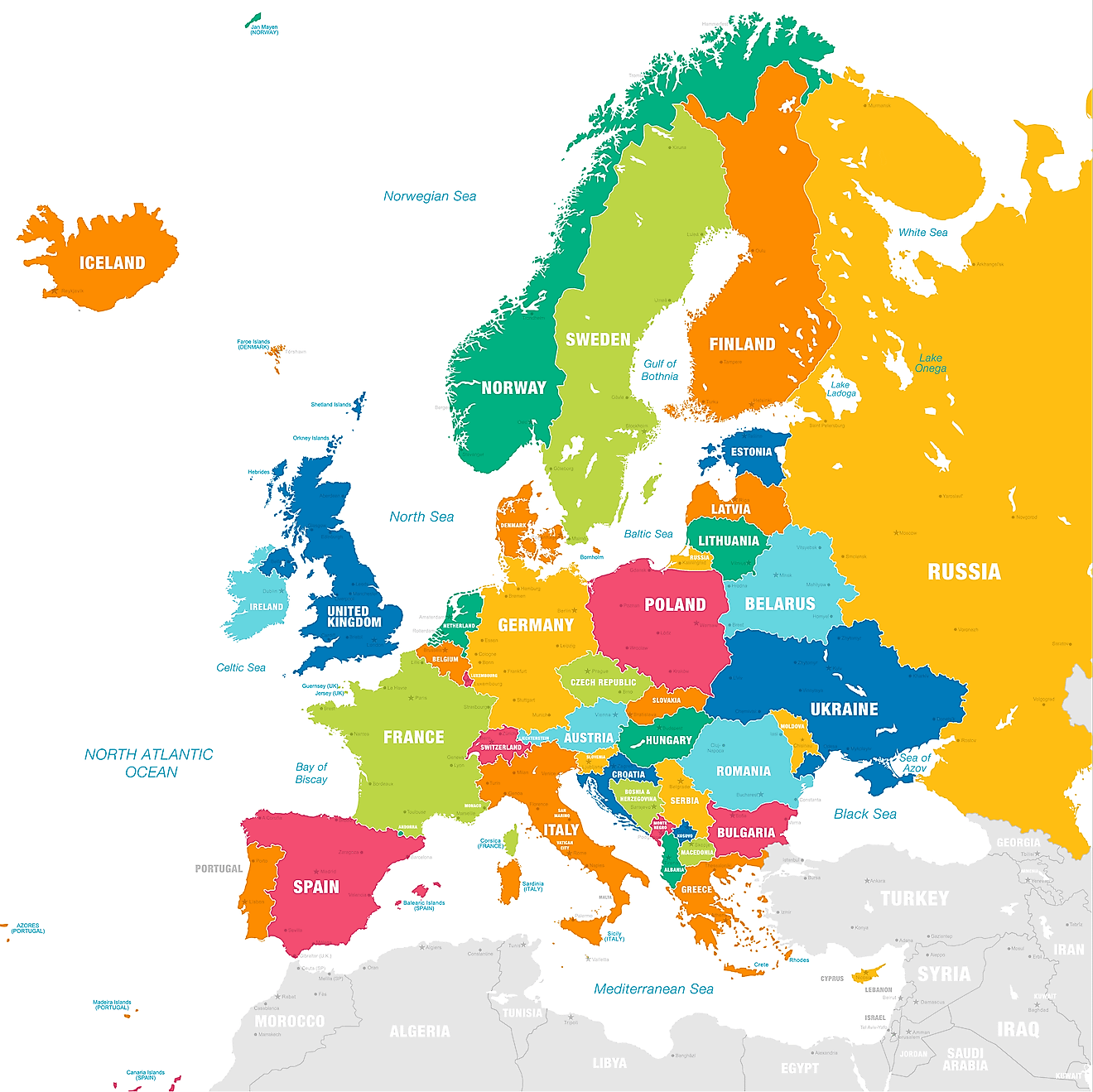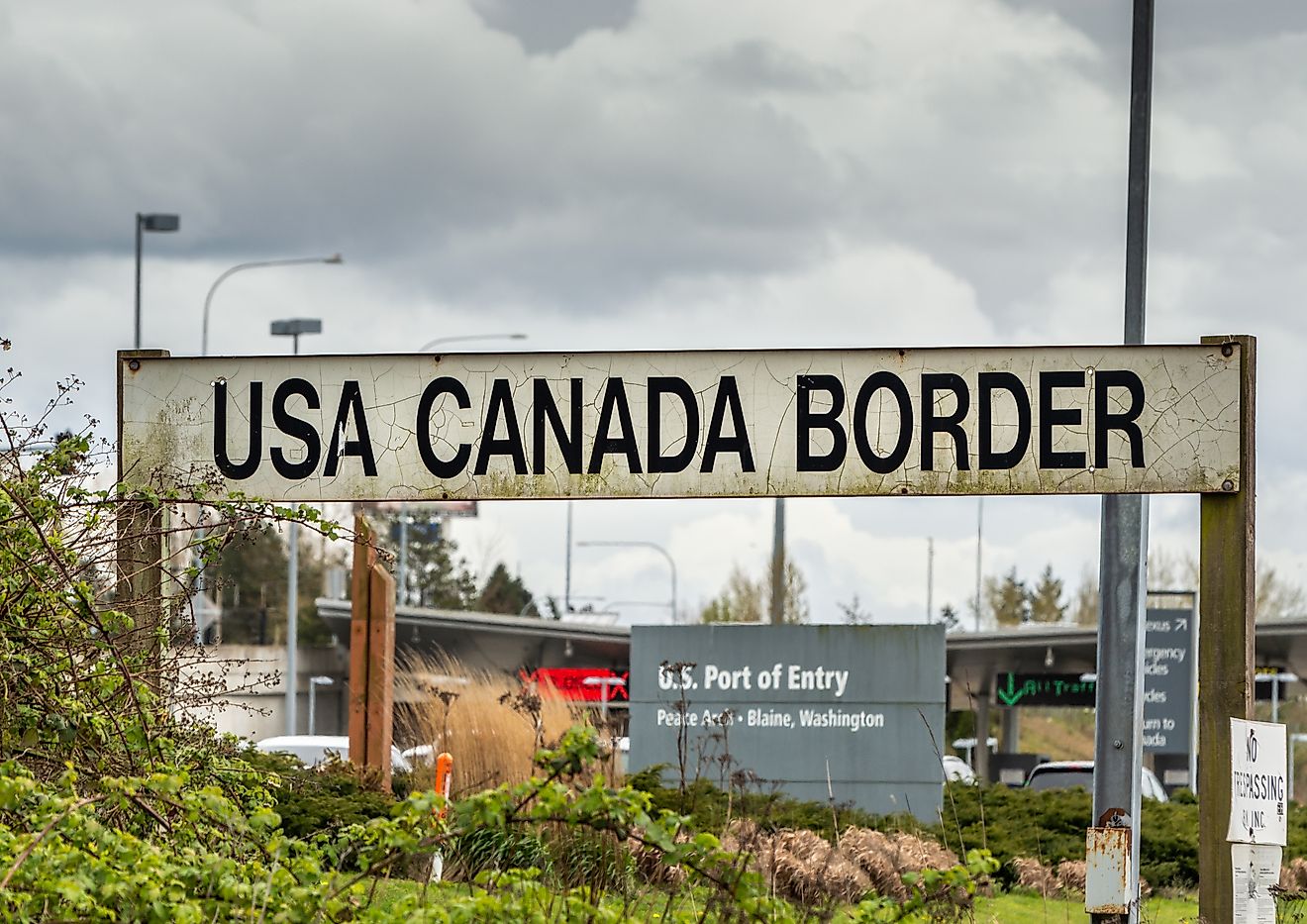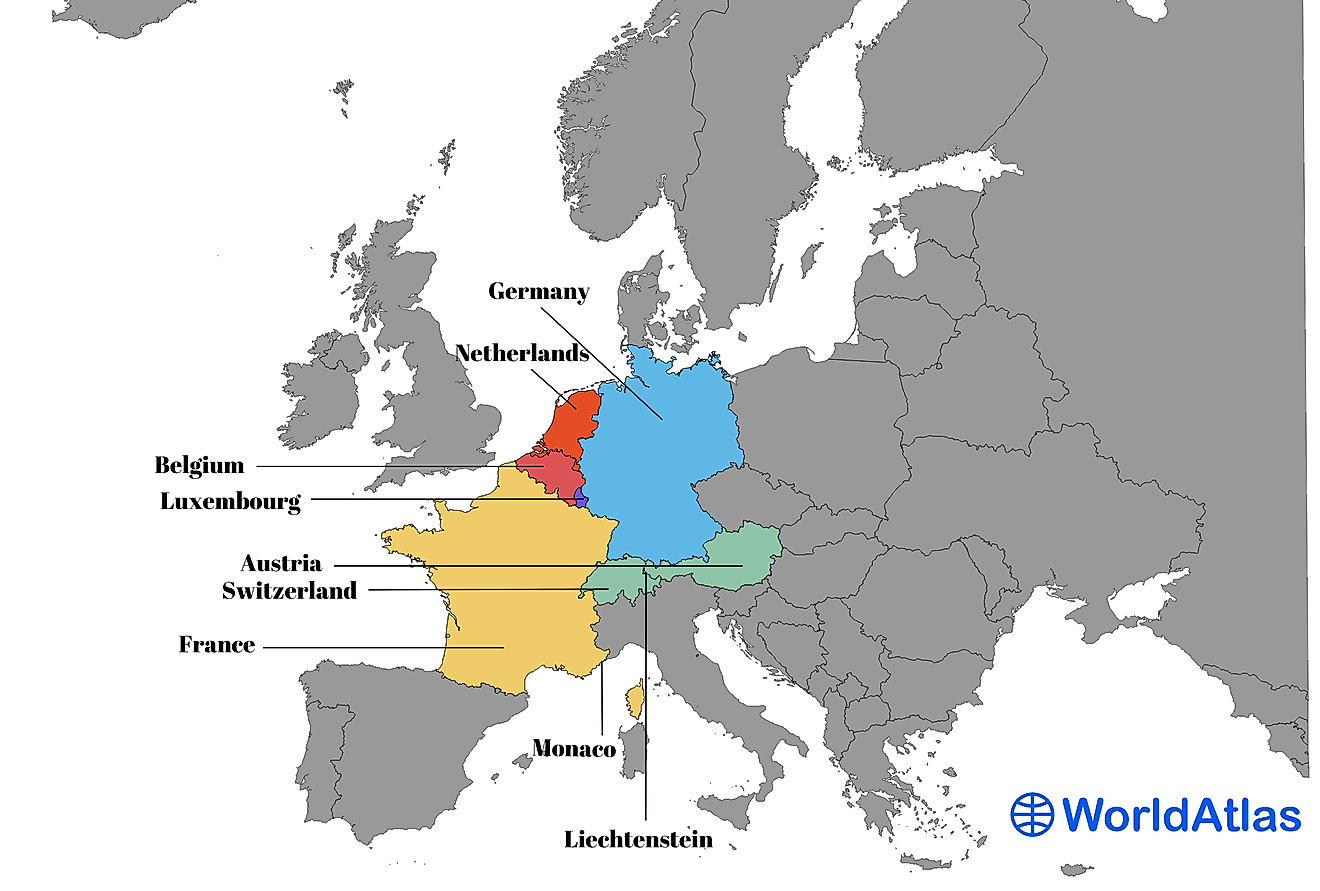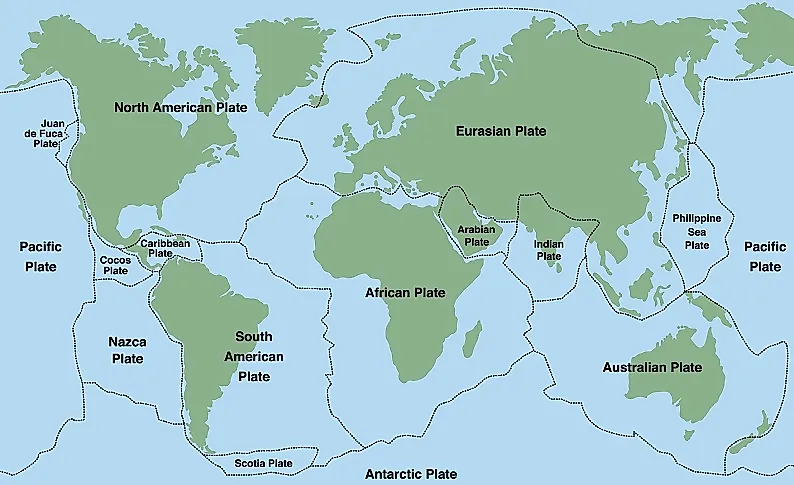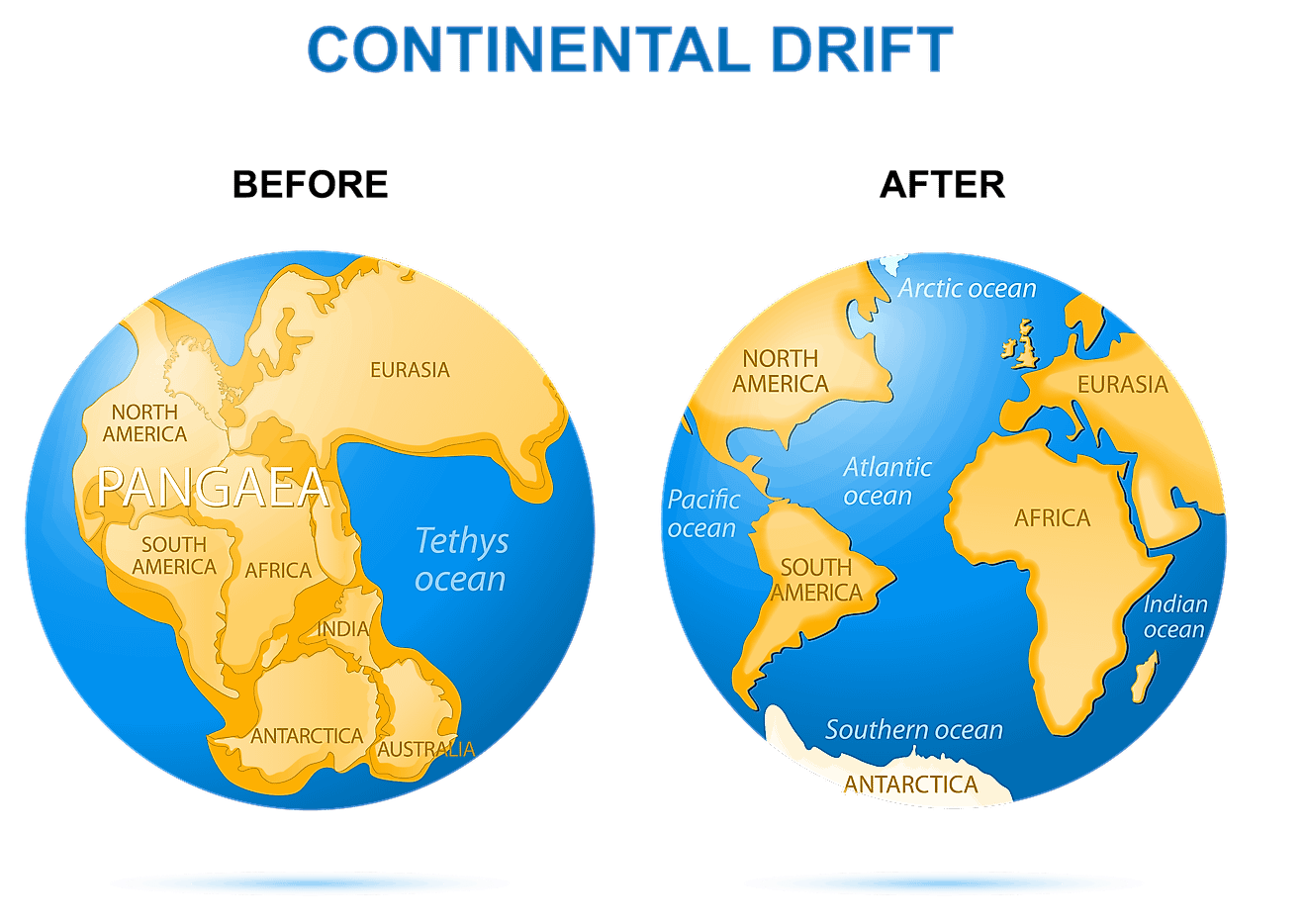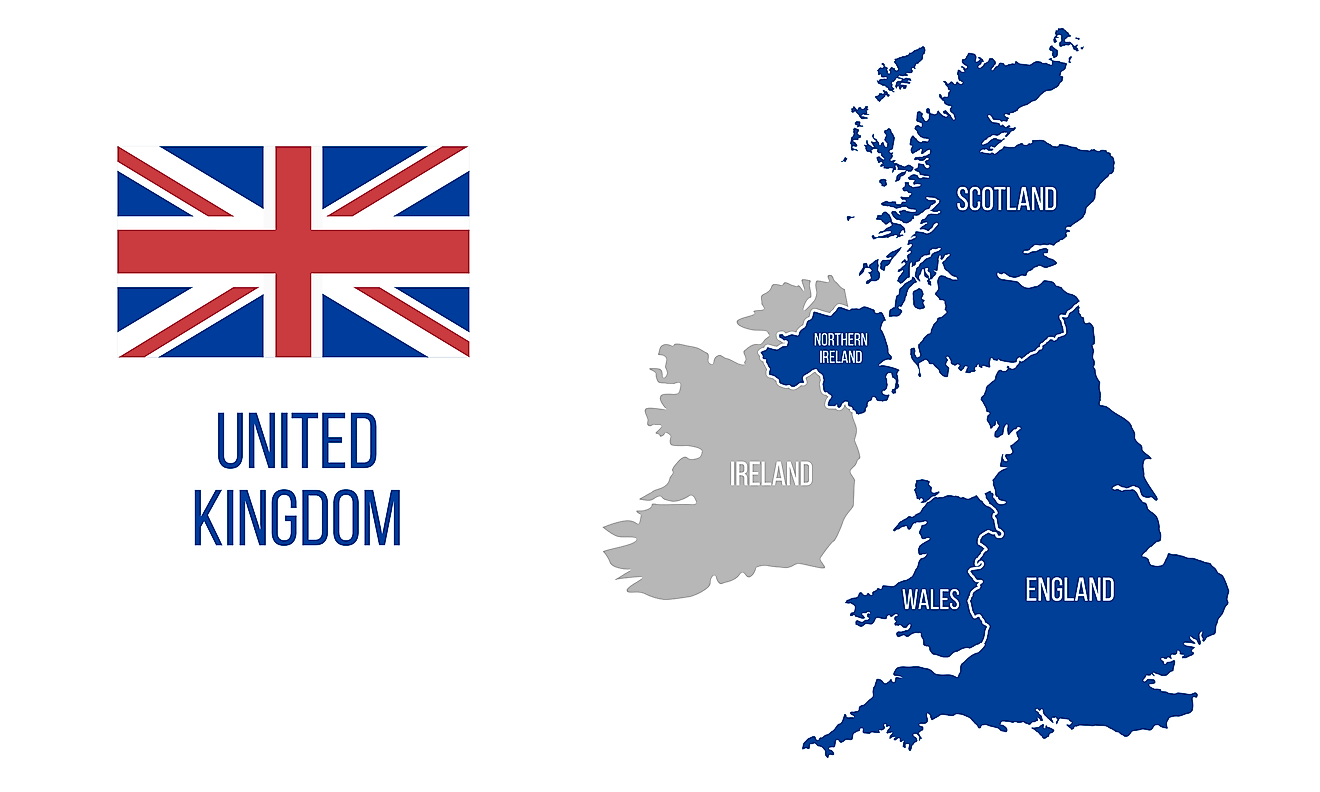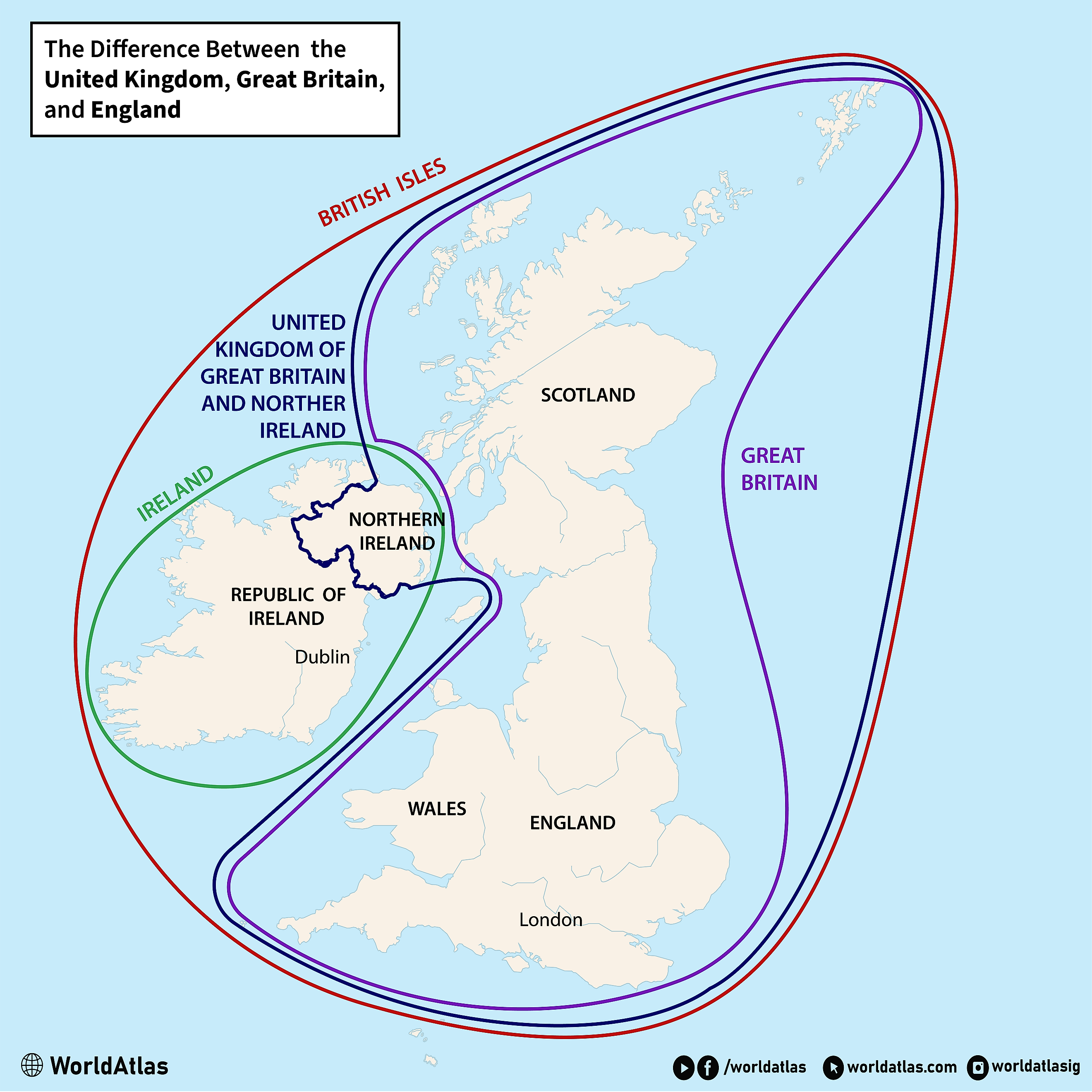
What Is The Difference Between The United Kingdom, Great Britain, And England?
Although many people use the three names interchangeably, there are several major differences between the United Kingdom, Great Britain, and England. The United Kingdom refers to the political union of England, Wales, Scotland, and Northern Ireland. Great Britain refers to the island that includes England, Wales, and Scotland. England, on the other hand, is a constituent country within the United Kingdom.
England
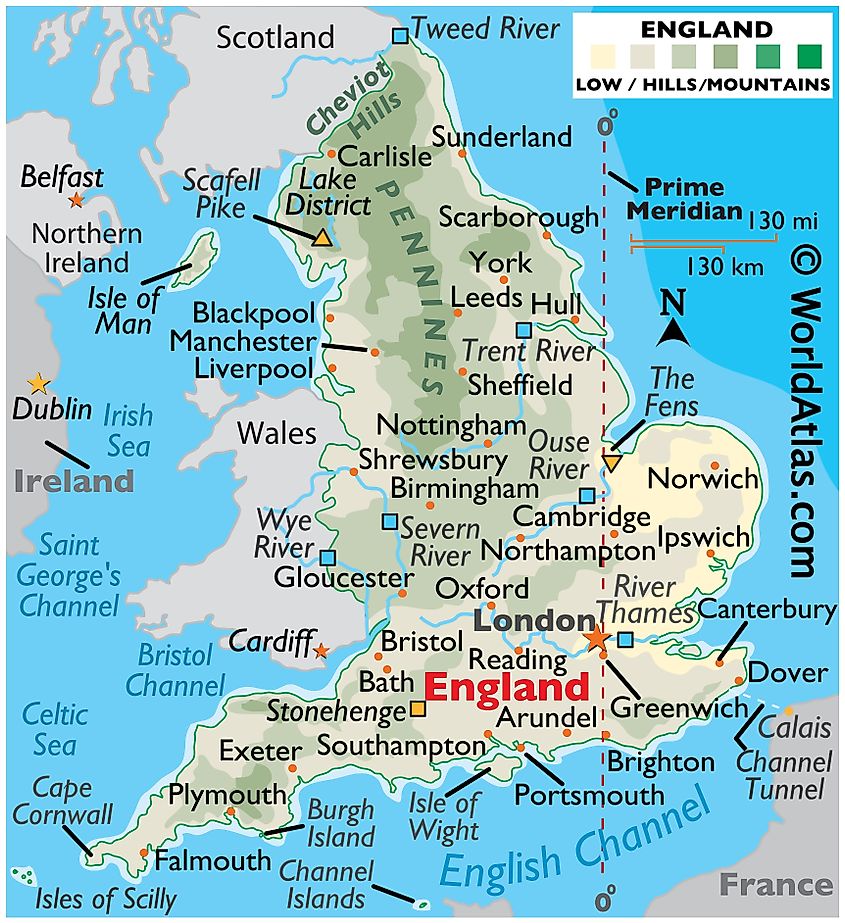
England is one of four constituent countries within the United Kingdom, located in the southern portion of the island of Great Britain. It shares its northern border with Scotland and its western border with Wales. In total, England spans approximately 130,279 square kilometers (50,301 square miles), making it the largest country within the United Kingdom. Home to about 57.11 million residents, England is the United Kingdom’s most populous country as well.
Unlike Wales, Scotland, and Northern Ireland, England does not have its own governing system. In fact, England has not had an independent government since 1707, when it merged with Scotland to become the Kingdom of Great Britain (Wales was, legally, already a part of the Kingdom of England by this point). For all matters relating to governance, England is under the jurisdiction of the Parliament of the United Kingdom of Great Britain and Northern Ireland. However, England has a local governance structure, which is divided into two tiers: county councils and district councils. Metropolitan councils also provide a governing structure to larger metropolitan areas.
The capital of England is London, located in the country’s southeast. As the largest city in both England and the United Kingdom, it is home to over nine million people. London serves as England's economic, transportation, and cultural hub, and also hosts the United Kingdom’s parliament at the Palace of Westminster. With a history spanning nearly two millennia, London is one of the world’s great historic cities.
Great Britain
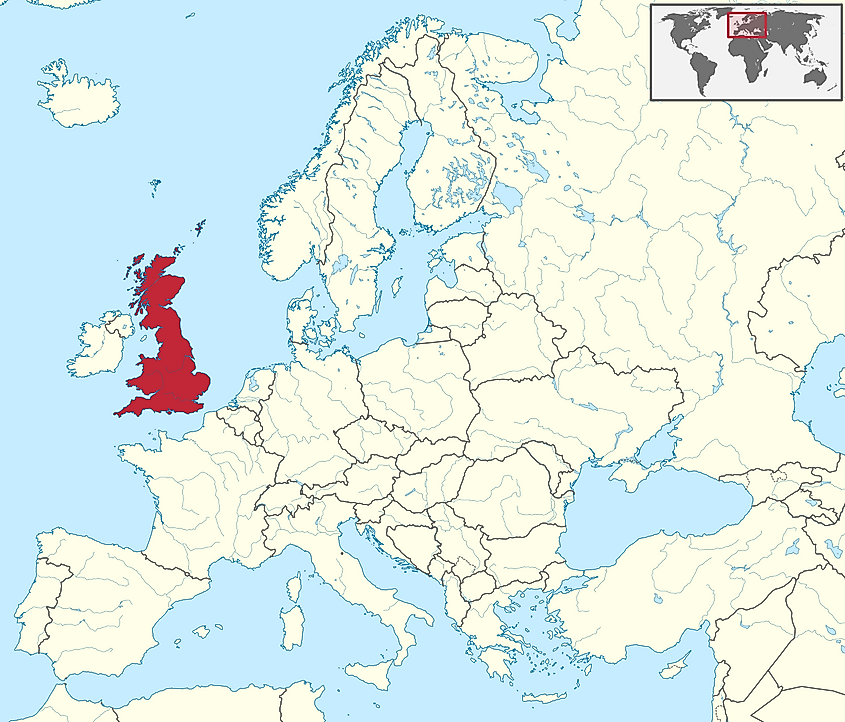
Great Britain is a geographical term that refers to the island that includes England, Wales, and Scotland. It does not denote a country or a political grouping. Covering 209,331 square kilometers (80,823 square miles), it is the largest island in both the British Isles and Europe. Great Britain does not include Northern Ireland, which lies on the island of Ireland.
Although today 'Great Britain' only refers to the landmass, for a short time, it was a governing entity (a kingdom) between 1707 and 1800. In 1707, the parliaments of Scotland and England, which included Wales at the time, signed an act known as the “Treaty of Union,” which unified the Kingdoms of both England and Scotland into a single Kingdom. This unification into the Kingdom that historians refer to as “The Kingdom of Great Britain” lasted until 1801, when the Kingdom of Ireland merged with Great Britain’s Kingdom under the Act of the Union 1800.
The United Kingdom

The United Kingdom is the political union between four constituent countries: England, Wales, Scotland, and Northern Ireland. It has a central government based on a constitutional monarchy and parliamentary democracy model. It is structured into three branches: the executive branch, led by the prime minister; the legislative branch, consisting of parliament; and the judiciary branch. This central government structure is situated primarily in Westminster, London. Although the United Kingdom’s monarch no longer holds executive powers, the role remains significant for constitutional and ceremonial duties, reflecting its historical importance.
As a whole, The United Kingdom spans a total area of 243,610 kilometers squared (94,058 miles squared). Besides London, important cities across the sovereign state include Manchester, Birmingham, and Leeds in England, Edinburg and Glasgow in Scotland, Cardiff in Wales, and Belfast in Northern Ireland.
Although the United Kingdom has a central government that unifies the constituent countries, Wales, Scotland, and Northern Ireland developed national assemblies that took power in 1999, replacing some of the previous central duties of Westminster’s central parliament.
Scotland Governance
Scotland has specific governing powers over areas such as education, health, and transportation and can also influence the general British income tax rate that residents pay in Scotland. Over the past few decades, some political groups, such as the Scottish National Party, have pushed for Scottish Independence from the United Kingdom. In the 2014 independence referendum, 55.3% of Scottish voters chose to remain in the United Kingdom, while 44.7% voted in favor of independence, leading to Scotland’s continued participation in the UK for the time being.
Wales Governance
Wales has also had a governing assembly since 1999, but it did not fully receive direct lawmaking power until 2011. The Welsh assembly administers a range of affairs similar to that of the Scottish assembly. Although some Welsh political movements such as YesCymru support the idea of an independence forum, the idea is not quite as prominent as it is in Scotland, with only 33% supporting the holding of a referendum as per a 2023 Redfield and Wilton Strategies poll.
Northern Ireland Governance
Northern Ireland’s Assembly has held certain legislative and executive powers since 1999, holding administrative power over a range of issues such as agriculture, education, social services, health, and economic development. However, the United Kingdom’s central government retains control over areas such as taxation, foreign affairs, criminal justice, and policing. However, Northern Ireland’s governing stability remains fragile due to divisions between unionist, predominantly Protestant factions and nationalist, predominantly Roman Catholic factions within its political assembly. If the national assembly loses its stability, the United Kingdom may consider reimposing direct rule, similar to the model used from 1973 to 1999.
Final Thoughts
Although there is overlap between the meanings of the United Kingdom, Great Britain, and England, various political and geographical differences persist, emphasizing the importance of distinction; therefore, while Northern Ireland is within the United Kingdom, for example, it is not within Great Britain. Independence movements in countries such as Scotland further emphasize the importance of these distinctions. Scottish or Welsh residents, for example, may find it frustrating to be mistaken as English residents rather than being recognized for their own distinct identities within the United Kingdom. Clear distinctions between these terms are essential for accurate and respectful discussions about the British Isles.




